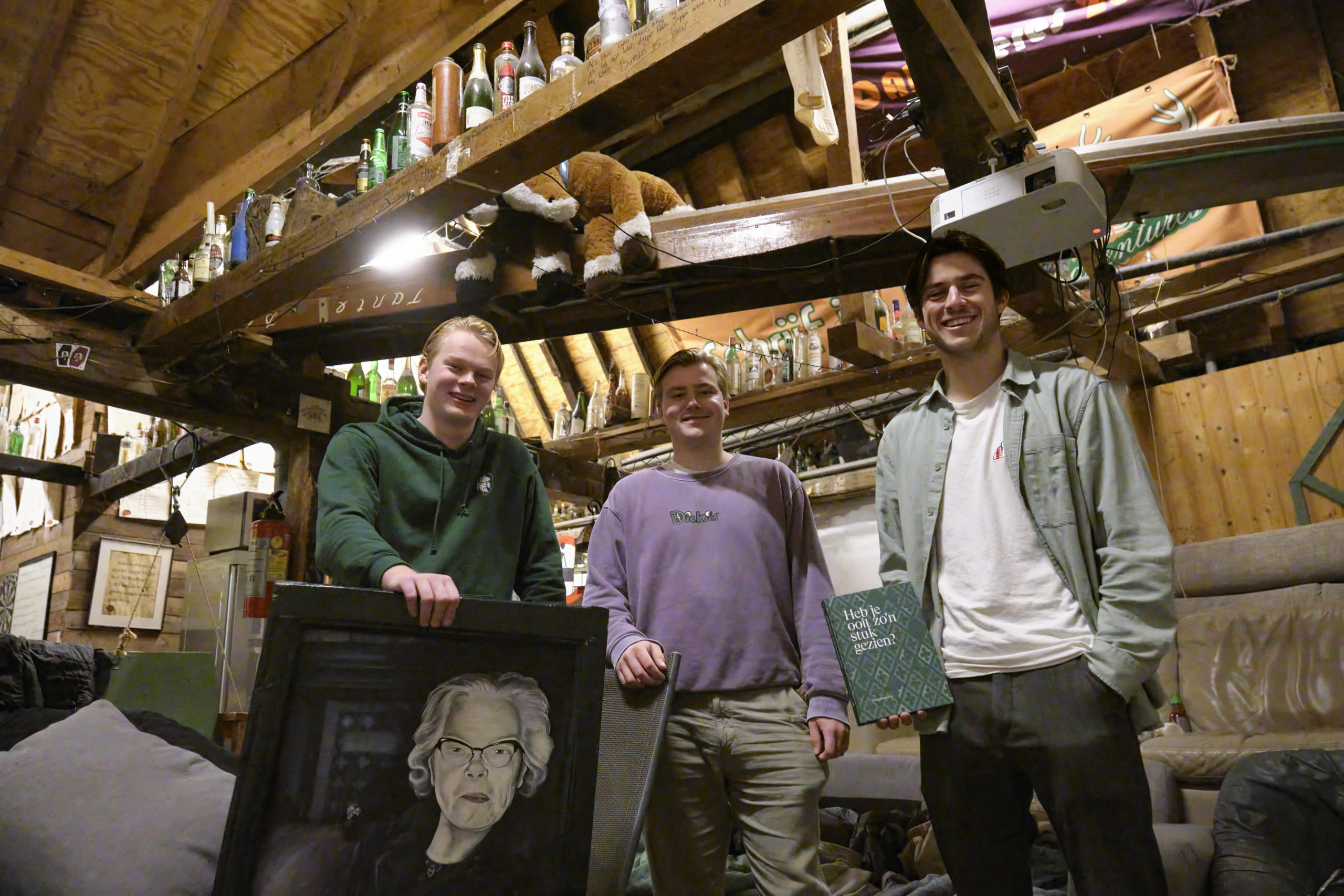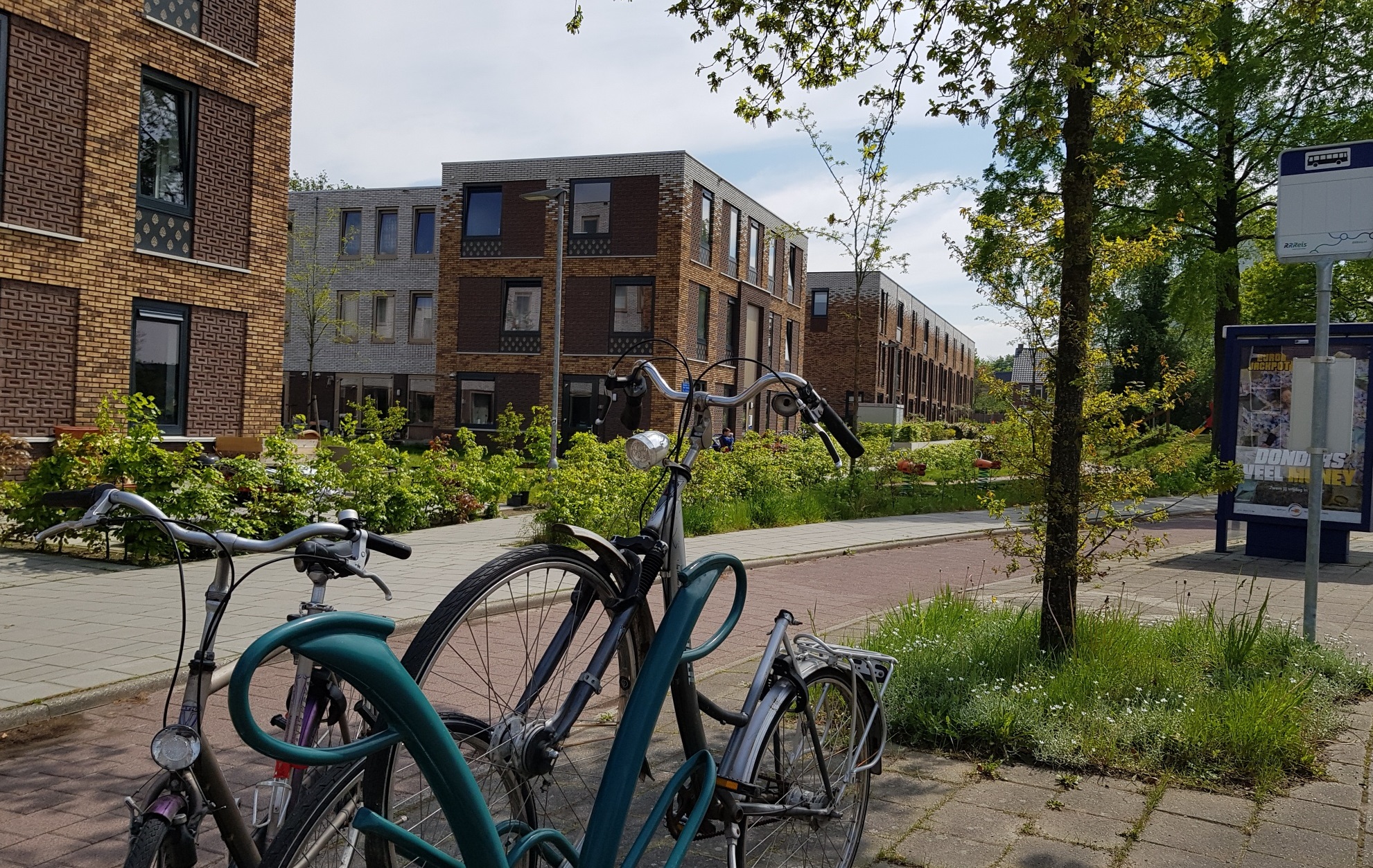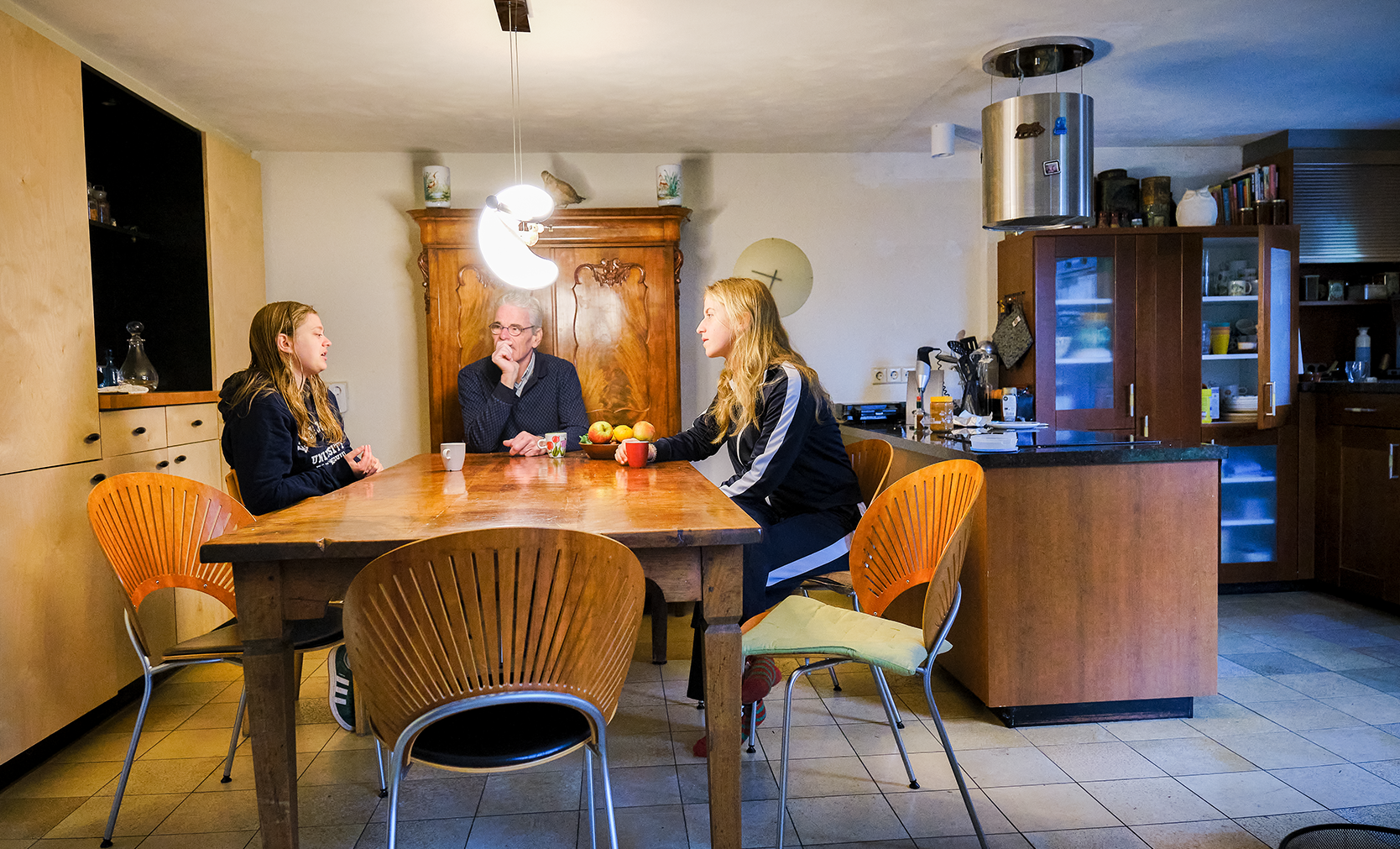A book came out last month about the student house H6 (Herenstraat 6). It’s called Heb je ooit zo’n stuk gezien? (Ever seen a hunk like that before?) Resource paid a visit to the residents and delved into the history of the house with them. A house that the sign above the door says is ‘exclusively for gentlemen’, where a certain Aunt Dien still calls the shots 50 years after her death.
On the wall of the ‘gentlemen’s room’ on the ground floor hangs a painting of a woman giving you a penetrating stare through her winged spectacles. She is Everdiena Hendrika van Laar, better known as Aunt Dien. ‘An important person from our history,’ says Wytse Doude van Troostwijk (23).
Everyone who’s at home still has coffee together at 10:30 every day
Over a cup of coffee, he and his housemates Remus Bende (21) and Myko Lamers (19) talk about their house’s illustrious history. ‘Aunt Dien was the landlady who rented rooms to students from 1937. You didn’t mess with her: apparently, she was very strict. H6 residents weren’t allowed any women visitors, for example. And yet they loved her, because she had a heart of gold.’
Society landlady
Bende adds: ‘Aunt Dien lived in part of what is now our kitchen. She made coffee every morning and everyone came down for it. She created a sense of community among the residents.’ In 1962, Aunt Dien was driven like a queen by coach to the Ceres clubhouse to be inaugurated as the ‘society landlady’. When she moved out of H6 to Emmapark in 1962, she still dropped in every day to make the coffee. ‘That became a typical H6 tradition,’ says Doude van Troostwijk. ‘Aunt Dien died in 1969, but everyone who’s at home stills has coffee at 10:30.’ And 25 years after her death, another generation of H6 residents succeeded in getting a new street behind the house named after her: the Tante Diensteeg.
Cat and mouse
Notwithstanding her key role, the book is about more than just Aunt Dien. It starts with a brief history of the house itself, which was built in 1738-1739 for Lubbert Adolf Torck (mayor of Wageningen and namesake of the Torckpark). This is followed by chapters covering five-year periods, each written by people who lived in the house at the time, interspersed with chapters about important people in the history of H6. ‘It provides glimpses of the spirit of the times and what student life was like through the years,’ says Doude van Troostwijk. ‘Our chapter is mainly about H6 in Covid times. Games of cat and mouse with the police in order to go to parties during the lockdown, for instance.’
Women welcome
A lot has changed in H6 over the years. Before 1965, for example, no drinking was allowed – you did that at the clubhouse. By 1971, that had presumably changed, given that when the house song was written, its first line was ‘H6, H6, H6 gaat aan de fles!’ (H6 is taking to the bottle, ed.). And whereas women were not welcome in the house in Aunt Dien’s time, their presence later became more normal. Bende: ‘There were traditions around that as well. As the girlfriend of an H6er, you had to “cook your way in” – i.e. cook for the whole house. WUR President Sjoukje Heimovaara did that in the 1980s.’
WUR President Sjoukje Heimovaara “cooked her way in” in the 1980s
Sharing a room has been a tradition in H6 for 50 years, and is still the norm. Doude van Troostwijk: ‘Of the 16 people living here, 10 share a room. Your fellow residents are your housemates, and your roommate is known as your “den mate”.’ Bende: ‘I’ve been den mates with Matt for three years. Room-sharing is unusual these days, but you do develop a strong bond this way.’
Falling pianos
Over the years, many H6ers have belonged to the rowing club Argo or to Malac Banda, the Ceres gypsy band. Doude van Troostwijk: ‘Since the Argonauts had to get up early to train while the band members were playing into the small hours of the morning, they were often at odds with each other.’ The link with Argo led to two boats being named after Aunt Dien. ‘One of them is up in the attic,’ says Doude van Troostwijk proudly. ‘The other one is at Argo and is still rowed in by H6ers in the Varsity race.’
When the last Malac Banda member left H6, his piano was ceremonially thrown out of the window. Since then, departing housemates find a free old piano somewhere and carry it up to the top floor with their cohort, and throw it out of the window. Doude: ‘That’s the reason for the sign outside saying “Beware: falling pianos”. Of course we make sure people keep a safe distance.’
Centenary
The idea of a jubilee book came up in 2017, when H6 was celebrating its 100th anniversary. But the ball only really started rolling in 2022, when an editorial board was formed. When the book was written, it turned out that the 100th anniversary had to be taken with a big pinch of salt. As a matter of fact, H6 was a family home for a long time, and a baby was even born in the house in 1957. Since 1958, when a room becomes free, only (male) Ceres members are invited to take up residence. ‘H6 has only been a student house in the true sense of the word since the 1950s,’ say the editors.
The book Heb je ooit zo’n stuk gezien is now for sale exclusively from Kniphorst bookshop, and can be ordered from maetschapH6@gmail.com or jevaner@xs4all.nl.

 Fltr: Myko Lamers, Remus Bende and Wytse Doude van Troostwijk Photo Guy Ackermans
Fltr: Myko Lamers, Remus Bende and Wytse Doude van Troostwijk Photo Guy Ackermans 

